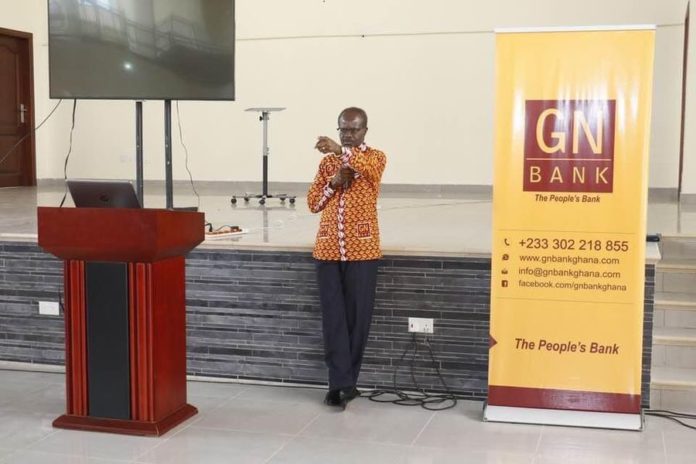The second phase of #BringBackGNBank national tour has commenced in the northern part of Ghana with a call on the ruling government to reinstate the license of the bank.
The first part of the tour which started on Sunday 26th May 2024, covered six regions including: Eastern, Western, Central, Volta, Greater Accra and Ashanti.
The team led by the chairman of Groupe Nduom, Dr Papa Kwesi Nduom intends to visit all the 300 branches of the bank in all the sixteen regions to acquaint themselves with the state of the properties of the bank, and also interact with Ghanaians, particularly, market women and men who were predominantly customers of the bank.
The tour will cover Wa, Bolgatanga,Walewale, Karaga, Tamale and Sunyani.
Dr Nduom in an interview with Today Newspaper said, “the #BringBackGNBank campaign is a national journey for local economic development”.
The renowned entrepreneur and businessman, as part of the tour engaged Ghanaians live on Suhupielli FM on Tuesday, August 20, 2024.

According to him, the campaign is a repeat of a national tour he led in 2018/19 when the central bank withdrew the licenses of some indigenous Ghanaian banks including GN Bank/Savings.
Readers will recall the message to Ghanaians during that period was to support indigenous banks and financial institutions in order to ensure Ghanaians had control over the economy. It was to demonstrate to the people that it was indigenous financial institutions, especially banks that had invested deep into the regions outside of regional capitals to bring safe and secure services.
GN Bank with 300 branches became the bank with the widest retail footprint. Back then, the tour was to show people how the spread of banking to their doorsteps was a sure way to promote economic development everywhere in the country.
When the indigenous banks were collapsed in 2018 and 2019, according to financial watchers, the local economy suffered, and micro to medium businesses especially so because it was those indigenous banks that supported them.

Not surprisingly, the vacuum created by collapsing indigenous Ghanaian banks, Dr Nduom noted, had still not been filled.
He further noted that, the space created cannot be filled by any foreign-owned banks or the so-called High Street banks.
This national tour, according to the Groupe Nduom chairman, “is to reiterate the commitment of the bank’s shareholders to the revival of the bank and their resolve to bring safe banking to the people’s doorstep everywhere in the country”.
He added: “It is to explain the circumstances that led to the withdrawal of the bank’s license and explain how the shareholders are working to return to the field”.

“It is the Groupe Nduom’s belief that by telling its story of support to the people, and the role the company can play to revive the local economy, the current government or the next one will listen to the people; and make sure that GN Bank comes back to serve its critical and useful role; with products and services in more than 300 locations countrywide”, he said.
According to him, GN Bank did nothing wrong for its license to be revoked by the central bank. To this end, he further called on the ruling government to, as matter of urgency pay monies owed to Groupe Nduom companies.
He explained that if the government had paid the monies owed to GN Bank, and other Groupe Nduom companies, the bank wouldn’t have been declared insolvent.
“We are calling on the current Akufo-Addo Administration to lift the embargo on payments to Groupe Nduom companies and the contractors whose contracts they had pre-financed. That debt has ballooned to over 7.1 billion Ghana cedis and is still climbing”, he said.
“This current national journey is to find out if the people want GN Bank back to serve them; and if the demand for its unique mobile and digital support banking services still exist”, Dr Nduom said.
While the focus is on banking and GN Bank, Dr. Nduom said, he will use this journey to tell the story of Groupe Nduom’s unique and unmatched delivery of a diversified portfolio of goods and services made in Ghana – production of rice, television, refrigerators, food containers, building materials, set top boxes, insurance, pension, hospitality, media all across the country; a true and committed stakeholder in the Ghanaian economy.
Source: Today Newspaper

